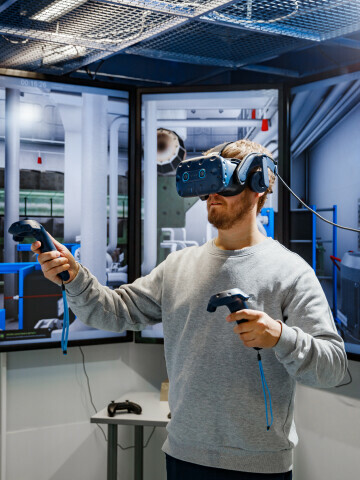
Bachelor of Engineering, Maritime Technology, Blended studies
Goal
Upgrade your Watchkeeping engine officer degree (A-III/1) to a Bachelor’s degree in Maritime Technology, Chief engineer (A-III/2). The programme can be completed as a full-time or part-time student in 2-3 years.
The aim of the education is to train competent and versatile chief engineers for domestic, European and international traffic. The main task of a chief engineer include being responsible for leading vessels technical department, and being responsible for vessels technical safety concerning both people and the environment. The education also offers a good base for functioning in leading positions in land-based organizations within the maritime field.
Content
The core studies cover the duties of engine officers.
Content of studies:
- mechanical engineering
- seamanship
- ship technology
- electrical engineering
- A large part of the education is realized through the advanced simulator center and workshops.
The education leads to a Chief Engineer competency. The training fulfils the requirements set in The International Convention on Standards of Training, Certification and Watchkeeping for Seafarers (STCW-convention).
Eligibility to apply is conferred by a Watchkeeping Engine Officer degree or another comparable STCW approved Watchkeeping Engine Officer degree (i.e. Navy, Coast Guard). You also need a Certificate of Competency, at least Watch Officer level (STCW A/llI-1) if you don't have Finnish Engine Officer degree.
Structure of studies
The studies consists of:
- Basic studies
- Professional studies
- Elective studies
- Onboard training
- Thesis 15 ECTS
The studies are divided into three levels:
Support Level (Watchman Engineer)
After completing support level including practical training (after approximately one year) you can apply for the certificate of competence for Watchman Engineer and after that it is possible to complete the rest of your practical training as a paid crew member.
Operational Level (Watch Officer Engineer)
After completing operational level including guided practical training (after an additional two years) you can apply for the certificate of competence for Watch Officer Engine.
Management Level (Cheif Engineer)
The main task of a chief engineer includes being responsible for managing the vessels' technical department, and being responsible for its technical safety concerning both people and the environment. To be able to apply for a certificate of competence as Chief Engineer a student must complete their degree (Bachelor of Marine Engineering) and gain work experience as Engine Officer on ships. The certificate of competence (Chief Engineers License) is issued by the Finnish Transport Safety Agency (Traficom).
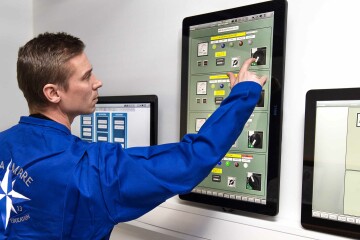
Qualification
The aim is that the student completes the theoretical studies qualifying the student for the Chief Engineers competency. With the Bachelor’s degree and sufficient work experience the maritime authorities, Traficom, will issue the Chief Engineers License.
Bachelor of Engineering, Maritime Technology
- Field of study: Technology and Seafaring
- Extent: 4,5 years 270 Credits
- Form: Bachelor's Degree - daytime- or blended studies
- Location: Turku
- Application period: 7–21.1.2026
Previous Knowledge
You can apply for Bachelor of Engineering, Maritime Technology, blended studies if you have completed
- Watchkeeping Engine Officer degree or another comparable STCW approved Watchkeeping Engine Officer degree (i.e. Navy, Coast Guard)
You also need a Certificate of Competency, at least Watch Officer level (STCW A/lII-1), if you don’t have Finnish Engine Officer degree.
Scholarships and Tuition Fees
The studies are free for EU/EEA citizens. Tuition fee for non-EU/EEA students is set to 10 000 euro for the academic year 2025-2026.
Tuition fee-paying (non EU/EEA) students can apply for a scholarship. Read more about tuition fees and scholarships on the Admissions Services pages.
Novia UAS on Social Media
We're on social media. Follow us to keep up to date with news from Novia UAS.
News and Events
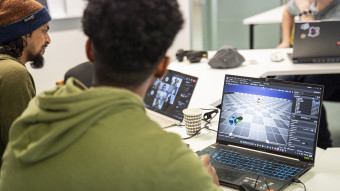

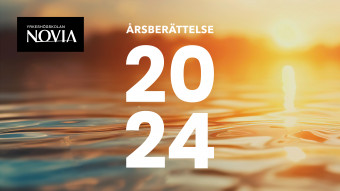

Degree Project
The Bachelor’s thesis comprises 15 credits. It often acts as a link between studies and career and provides students with an opportunity to apply theoretical models to practical problems. The thesis becomes part of the student’s competence profile. The thesis can consist of internal and /or external commissions, joint projects or other projects related to working life. Examples are:
- reports (e.g. investigations, surveys, analyses and/or evaluations)
- development work (e.g. development of working methods or activities)
- product development (e.g. a prototype or a model)
- a plan, a product or an artistic work (e.g. an event, a collection, an artistic production, a course, design of material such as guides/manuals or handbooks)
- a portfolio
Career Opportunities
Graduates from the degree program in Maritime Engineering are professional and versatile chief engineers, qualified for Finnish, European and International careers. The first self-evident career at sea can be as officers on board any type of vessel. Shore based careers within the maritime industry are underpinned by a sufficient career at sea. The maritime industry offers land based positions within different authorities, shipping companies, brokers, insurance companies, yards, logistics, and so on.
Internationalisation
Students can participate in international activity by
- studying as an exchange student for a semester or an academic year at one of our partner schools around the world
- doing an internship abroad
- participating in intensive courses and projects with international students
We aim at strengthening our international profile in the EU primarily in the Nordic and Baltic Sea region. Novia is actively involved in various programs and build a network of strategic partner institutions and other stakeholders in Europe.
Erasmus partner schools
Netherland: Maritiem Instituut Willem Barentsz
Turkey: Dokuz eylül universitesi
Spain: Universidad de cadiz
Germany: Jade hochschule
Sweden: Linnéuniversitet
Nordplus network partners
Högskolan på Åland
Chalmers tekniska högskola, Sweden
Högskolen i Vestfold, Norway
Other partners
Philippines: GigaMare training center.
Novia takes active part of the development of continuing education at GigaMare, where Novia is a partner.
Language of Instruction
The programme is offered in English.
Collaboration With Other Actors
The simulation resources of Aboa Mare (Novia) consist of ten simulator bridges, engine room simulators, VTS (Vessel Traffic System) simulator, DP (Dynamic Positioning) –simulator and radio simulator. Aboa Mare can offer training on CONSILIUM, FURUNO, SAM Electronics, SPERRY and TRANSAS bridges in its simulator. With Aboa Mares own developed simulator interface Aboa Mare can generate technical faults to the real navigational instruments on the bridges. Aboa Mares staff consists of 40 simulator instructors with a wide range of experience in shipping.
Major shipping companies (for example Viking Line, Tallink Silja and Neste Oil) are training their officers in Aboa Mares simulators. Aboa Mare also have extensive co-operation with companies in research and other projects, for example ABB, Wärtsilä, Elomatic and Eniram.
Aboa Mare have a long tradition of pilotage training and examination, simulator training in critical situations and today a big effort is put into ice navigation and energy-efficient ship operations.
Aboa Mare is authorized by the Finnish Maritime Administration to deliver STCW maritime education and to arrange pilot exemption exams for the Finnish fairways. We are also audited by IALA to arrange VTS operator training according to the IALA standard and by Nautical Institute to arrange DP training. The quality of our training is guaranteed by DNV ISO 9001 and ISO 14001 standards.
Continuing Education Opportunities
After completing the Bachelor’s Degree it is possible to continue to Masters level studies at Universities or Universities of Applied Sciences.
At Novia University of Applied Sciences we offer Master’s Degree studies in Autonomous Maritime Operations and in Maritime Management.
Webinar for Applicants to Bachelor's Degree Programmes
Frequently Asked Questions
How do I apply?
Apply online at www.studyinfo.fi
Read more about the application process.
Research focus
WINMOS –Winter navigation motorways of the sea
The project reduces the problems caused by sea ice in the Baltic Sea. Sea ice is a difficult burden to industries that depend on fast, reliable deliveries. A large number of ships suffered serious delays because of prevailing ice conditions during the winters of 2010 and 2011.
MONALISA 2.0 Securing the chain by intelligence at sea
A project that will contribute to more efficient, safer and environmentally friendly maritime transport. Modern technology and real-time data and new methods for data exchange between ship and shore should take the shipping into the future.
MONA LISA 2.0 includes 30 partners. It is about authority, representatives from private industry and academia in Sweden, Finland, Denmark, Germany, UK, Spain, Italy, Malta, Greece and Norway.
Career Opportunities
Graduates from the degree programme in Maritime Technology are professional and versatile Chief Engineers, qualified for Finnish, European, and International careers. The first self-evident career at sea can be as officers on board any type of vessel. Shore-based careers within the maritime industry are underpinned by a sufficient career at sea. The maritime industry offers land-based positions within different authorities, shipping companies, brokers, insurance companies, yards, logistics, and so on.
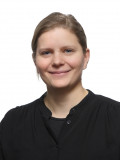
Emilia Lindroos
Senior Lecturer
Apply to Become an Engineering Student!
Apply for a Bachelor's Degree in Maritime Technology at studyinfo.fi.
Related News
Read more related news

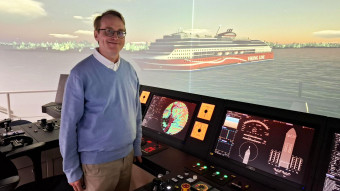

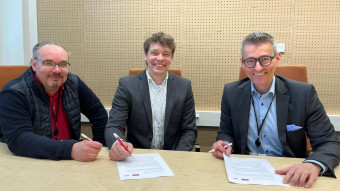



Meet Us
Novia University of Applied Sciences participates in several different student fairs and events. Our own students who are trained PR tutors visit secondary education schools across Finland. If you want to book a visit to your school or high school please contact Julia Mård, julia.mard@novia.fi and we will help you!
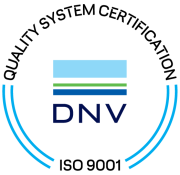
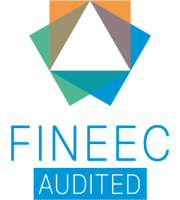
Novia UAS quality management is certified according to the ISO 9001 quality standard. This means that every year our entire business is audited by DNV. This is to ensure the best quality and constant development of Novia UAS.